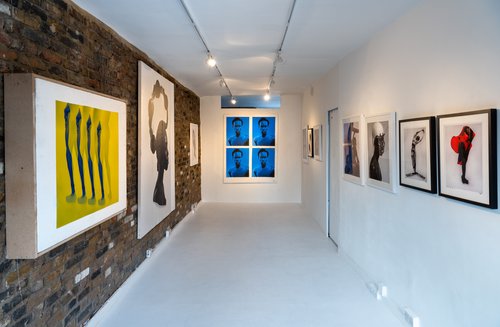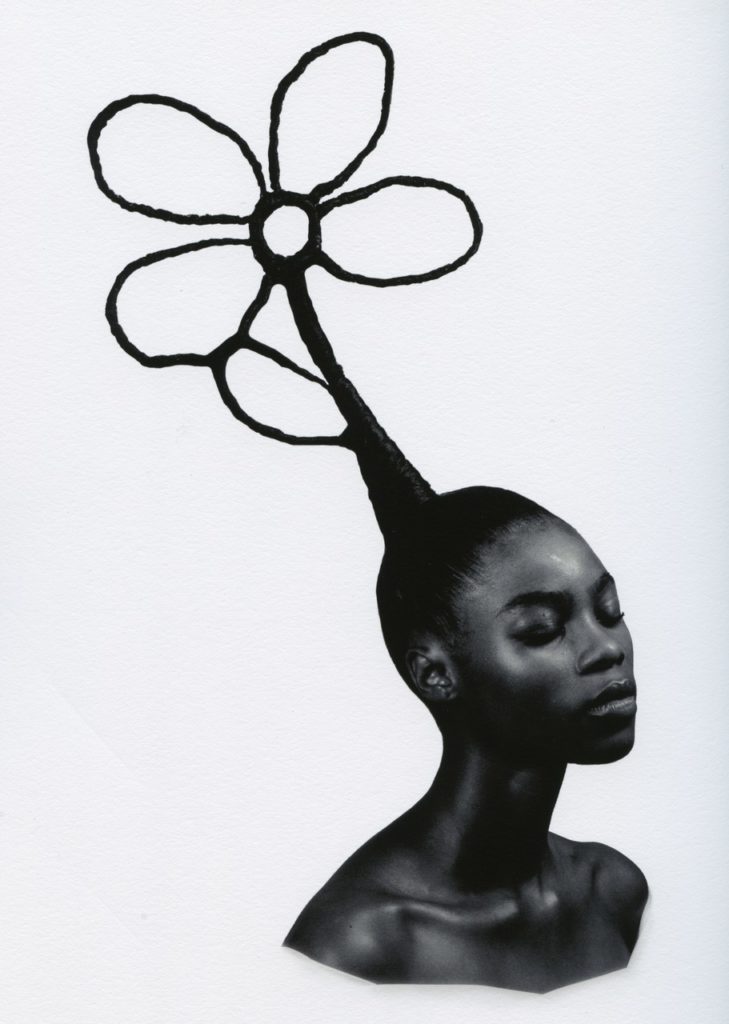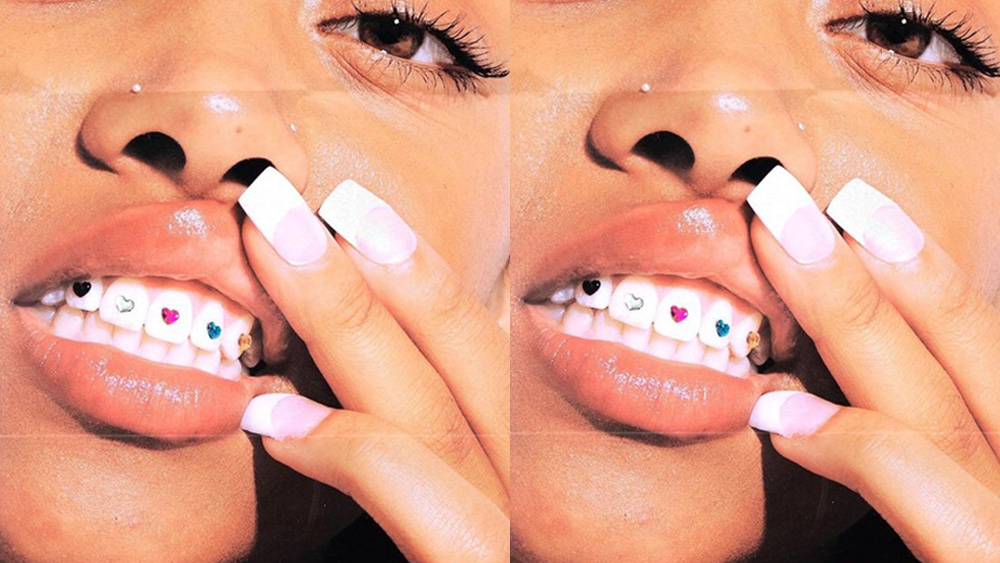See You by Cameron Ugbodu

Cameron Ugbodu awakens Black, queer archival work through their exhibition See You now open at Doyle Wham, a contemporary African photography gallery in Shoreditch. Cameron is a London-based, Austrian-Nigerian artist and curator, whose first solo exhibition “New Mo(nu)ments” was exhibited at Flat 70, a Black-led community arts space in South East London.
Cameron’s current show at Doyle Wham, exhibits pieces from this previous exhibition alongside some artwork from their more recent projects. The project “New Mo(nu)ments”, beautifully captured the essence of the Nigerian Benin bronze sculpture and other African artefacts, through intricate hair sculptures. The models featured in these images are gracefully lit and strikingly pensive in their stances.

The hair sculptures are inspired by traditional African sculpting, such as Akan gold weights and wood crafting techniques. Ugbodu cites these wooden sculptures as their first introduction to art – when their grandfather shipped these from Nigeria to Austria as wedding gifts. Telling this origin story, we really are seeing Cameron through their work.
The jewel of the show for me is an incredible life-sized photograph, entitled “Collective Power”. The warm tonal nature of the image is striking – interacting gracefully with the harsh and angular shapes created by the three bodies.
The name of the exhibition See You plays on the artists’ own initials and the reflexive relationship that the viewer has with the art that they engage with. Cameron’s work is a very dynamic conversation between the viewer and the artist, as they share very intimate parts of themselves and their story in their work. The conversation is polyphonic, ongoing and unfinished. Interacting with the exhibition made me think very closely about who art voices, and who it silences.


The concept of the art dealer is one that is complex and has long been discussed. Founded by two young white women Imme Dattenberg-Doyle and Sophia Carriera-Wham, Doyle Wham is hailed as the UK’s first and only contemporary African photography gallery. Considering the themes that Cameron’s work engages with – their work in a white-owned space, specifically for African photography feeds into this same conversation about ownership and how Black people engage with art.
I think this should not be overlooked, as themes of visibility, ownership, and the public/private divide run throughout the exhibition. “As a black artist, I want people outside to see our work and not have it restricted from view for only the privileged. Not everyone has the time or the resources to go to a gallery and in the gallery space you have to ask for permission to show your art.” It is greatly important that this was recognised and highlighted because of how transformative Cameron’s work is and can be for their communities, specifically Black queer people.

During the opening night, I had very insightful conversations with some of Cameron’s peers and fellow creatives about the archival work that Cameron’s work lends itself to. I think to a recent interview between Cameron’s mentor and incredible Ghanaian-British photographer Campbell Addy and i-D, where he mentions that he is ready to go “full camp” in his upcoming projects. There is a certain level of unapologetic-ness that comes with Black queer artists, that we also view in See You. There is endless visibility and transparency in the work that Cameron and their peers are sharing with the world.
Thinking about the “archives” can be messy. It is closely linked to academia, and what society has deemed as “higher” forms of art. Silences within the archives are manifestations of power. A power dynamic that imposes limitations on our imagination, and revolutionary capacity. But, in an effort to tell our vibrant history of ideas and practices, we must sift through this distorted past. See You reminds me that the archives are not in the past. Rather, through artistic expression, we can subvert the traditional, tripartite system of “past, present and future”. All of these space and time dimensions are not native to Indigenous African and Afro-diasporic thinking. Art like Cameron’s helps us to reorder this time. Or simply forget the idea of time altogether.

See You is excellent for more than just the art that is on display. It is also for what isn’t on display. What the viewer finds within themselves. Self-curated, Ugbodu is intentional with this exhibition. The piece entitled “Wallflower”, which was used for the press release and posters, perfectly captures the essence of Ugbodu’s exhibition. An eye staring into the self.
See You, by Cameron Ugbodu is exhibiting until 7 May 2022 | DOYLE WHAM, 91A RIVINGTON STREET, LONDON, EC2A 3AY
Check out the GUAP Arts & Culture section, to discover new art, film, and creative individuals.




![ZINO VINCI’S ‘FILTHY & DISGUSTING’EP BRINGS YOU TO THE CORE OF THE ARTIST [@ZinoVinci]](https://guap.co/wp-content/uploads/2023/10/Zino-4.jpg)





![Remel London’s [@Remel_London] “Mainstream” is a must attend for upcoming presenters!](https://guap.co/wp-content/uploads/2017/02/REMEL-LONDON-FLYER-FINAL-YELLOW-COMPLETE-1.png)